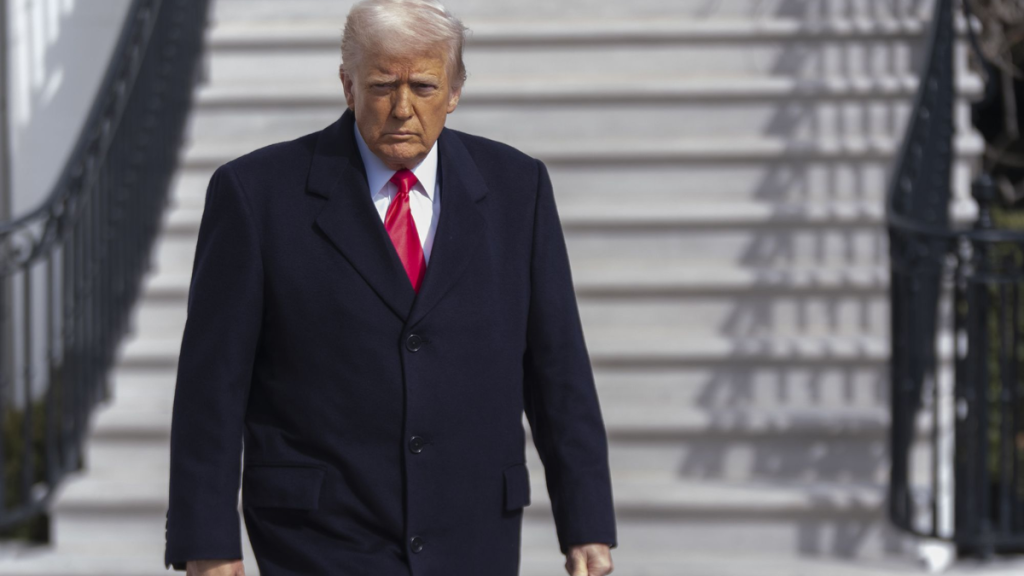Former President Donald Trump is once again placing immigration at the heart of his presidential campaign platform. Speaking to supporters during a recent campaign rally in Pennsylvania, Trump declared that if he wins the 2024 election, he will oversee the largest deportation operation in American history, pledging to remove “millions of criminal illegal aliens.”
“We will begin the largest domestic deportation operation in American history. Millions of criminals—gone,” Trump said, receiving loud applause from attendees.
While the statement energized his conservative base, it also reignited intense debate nationwide. Critics from both legal and political circles argue that such a plan would be extremely difficult to implement and potentially unconstitutional.
Legal Experts Warn of Major Constitutional Roadblocks
Trump’s proposal, critics say, runs into immediate legal and practical obstacles. The U.S. Constitution grants due process rights to all people on American soil—regardless of citizenship status. This means that any mass deportation would require individual hearings and judicial reviews, a process already strained by an overburdened immigration court system.
According to the Transactional Records Access Clearinghouse (TRAC), the U.S. immigration court backlog has surpassed 3 million pending cases as of early 2025. Attempting to process millions more would bring the system to a standstill.
“You can’t simply round up people and deport them without due process. The law doesn’t allow it,” said Aaron Reichlin-Melnick, policy director at the American Immigration Council. “Mass deportation on this scale would face major court challenges.”
Critics Say Trump’s Plan Is Logistically Impossible
Beyond the legal issues, critics say Trump’s proposal faces insurmountable logistical challenges. Removing millions of people from the country would require:
- Tens of billions of dollars in funding
- Dramatically increased staffing for Immigration and Customs Enforcement (ICE)
- Expansion of detention centers and transportation systems
- Coordination with foreign governments for repatriation
In his first term, Trump proposed large-scale deportation efforts but fell short of meeting those goals. Analysts note that the Department of Homeland Security, even under a Trump administration, would likely lack the resources and capacity to carry out such an ambitious operation.
“We’ve seen these promises before,” said Muzaffar Chishti, a senior fellow at the Migration Policy Institute. “They make headlines but are nearly impossible to carry out.”
Civil Rights Groups Condemn Rhetoric as Divisive
Civil liberties groups and immigrant advocacy organizations swiftly condemned Trump’s remarks, saying they are meant to incite fear and scapegoat vulnerable communities. The American Civil Liberties Union (ACLU) released a statement denouncing the proposal as “xenophobic” and “legally indefensible.”
“Language like ‘millions of criminals’ is dangerously broad and dehumanizing,” said Vanita Gupta, a former DOJ civil rights attorney. “These claims are aimed more at creating division than solving real policy problems.”
Organizations fear that such rhetoric could lead to racial profiling, increased surveillance, and civil rights violations, particularly in immigrant-heavy neighborhoods.

Social Media Reactions Highlight Public Divide
Trump’s comments quickly went viral online, with sharp reactions on both sides of the political spectrum. Supporters praised the former president for prioritizing border security and national safety, while critics mocked the feasibility of the proposal.
One user on X (formerly Twitter) wrote:
“Trump’s fantasy of deporting ‘millions’ is just that—a fantasy. He failed to do it in office and can’t legally do it even if reelected.”
Others expressed concerns about what such a plan would mean for mixed-status families, many of whom have lived in the U.S. for decades.
Meanwhile, pro-Trump commentators and influencers defended the statement, accusing Democrats of ignoring border security and downplaying the impact of undocumented immigration on crime rates.
Experts Refute Link Between Crime and Immigration
A recurring theme in Trump’s speech was the idea that undocumented immigrants are contributing to violent crime. However, numerous studies contradict this claim.
A 2020 analysis by the Cato Institute found that undocumented immigrants are less likely to commit crimes than native-born Americans. Similarly, data from the Pew Research Center and various academic sources have consistently shown no link between higher immigration rates and increases in crime.
“The notion that immigrants are responsible for a crime wave is not supported by the evidence,” said Alex Nowrasteh, immigration policy analyst at Cato.
Conclusion: Campaign Promise or Political Distraction?
As the 2024 election cycle heats up, Donald Trump’s promise to deport millions of “criminals” plays directly to his base, who see him as tough on crime and immigration. However, legal realities, resource limitations, and constitutional protections make the fulfillment of such a promise unlikely.
Whether the former president intends to implement this plan or is using it as a political talking point remains to be seen. What is clear, however, is that immigration will continue to be a major issue shaping the national debate in the months ahead.
Trump’s comments have once again polarized public opinion, setting the stage for a contentious and ideologically driven election season.
For more expert insights, visit the Migration Policy Institute.
Disclaimer – Our team has carefully fact-checked this article to make sure it’s accurate and free from any misinformation. We’re dedicated to keeping our content honest and reliable for our readers.
